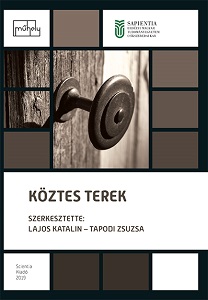
We kindly inform you that, as long as the subject affiliation of our 300.000+ articles is in progress, you might get unsufficient or no results on your third level or second level search. In this case, please broaden your search criteria.



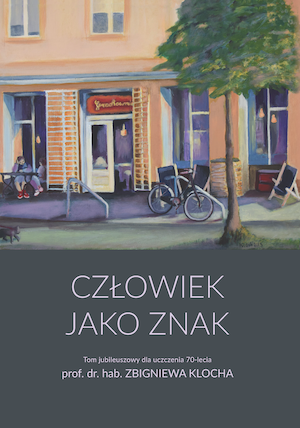
In the essay, Polish intelligents were treated as network nodes that as signs in the social system appeared walking, standing and sitting. This symbolic view of their role indicates their importance in giving meaning to Polish national space.
More...
In Russia Adam Mickiewicz quickly earned respect and a prominent position in the democratic literary society. Konrad Wallenrod, translated in prose by Stefan Shevyriev and published in 1828 a few months after the Polish edition immediately became very popular and by 1834 its fragments had been translated twenty times. The reception of the poem is paradoxical; in a description of the withdrawal of freezing Teutonic Knights defeated by Lithuanians the Russians saw Napoleon’s flight from Moscow. Thus, surprisingly, a picture of the same event captured in a poem about a fight for freedom has a different meaning to two nations. Therefore Konrad Wallenrod confirms Stefanowska’s thesis of “poetry dominating over truth”.
More...
The title character in Aleksander Fredro’s comedy Pan Jowialski [Mr Jovial] has been a bone of contention for scholars interpreting the work ever since its world premiere in Lwów in 1832. The paper briefly outlines the main threads in these disputes and proposes a new interpretive perspective. An analysis of Act IV, Scene 1 reveals that the allegorical picture sketched by Wiktor the painter is based on entries from Rev. Alojzy Osiński’s "Słownik mitologiczny" ["Dictionary of Mythology"] (Warszawa 1806–1812). Fredro had this book in his reference library. Transformations and modifications of dictionary expressions enable Fredro to create his own allegorical composition engaging all of the stage characters. Jowialski himself becomes this world’s central figure: “Jove”. This scene, usually shrugged off as a “stage gag”, might thus be recognised as the playwright’s instructions explaining the scheme of the whole comedy.
More...
The title’s “no biography” points directly to the aim of the paper, namely an interpretation of Jarosław Iwaszkiewicz’s Tatarak [Calamus] that suspends the biographical context. This particular work in the writer’s oeuvre seems to require such a construal. When read – most often – as a text that is autobiographical or contains evident references to the writer’s biography, it loses its uniqueness. It thus becomes little more than an excuse for increasingly bold comparisons between the feelings of the protagonist, Marta, and the passion felt by Iwaszkiewicz himself from his infatuation with a much younger man. Meanwhile, the artistic magnitude of this short story by no means lies in any biographical context, but in the system of meanings it creates and utilises. Starting from the composition (including a story-within-a-story structure), through the portrayal of the characters, all the way to the significance of the title’s sweet-flag plant.
More...
The text “Body of Grochowiak. Turpism or resurrection” is an analysis of Stanislaw Grochowiak’s poetic aesthetics, through the prism of how he describes the human body. The author questions the thesis, well-established in literary research, that Grochowiak was a turpist poet, focused on death, ugliness and pain. However, it shows how important the context in which the poet was creating is. Showing humanity through images devoid of Arcadian beauty is a fuller perspective, thanks to which poetry becomes more human, helps to disenchant the cruel reality by giving new meanings to suffering. It can not only become a companion of everyday life, but also help to find a language to tell about the post-war reality, often filled with pain and lack of hope.
More...
The article analyses the problem of recognition of sings and relevant understanding of their respective meanings, as well as the question of in what ways interpretative hypotheses determining the content of a literary work are conditional upon the reader’s cultural competencies and worldview assumptions. These considerations are related to my interpretation of Nabokov’s short story Signs and Symbols, which turns into a series of alternative readings. The ambiguity of the Nabokov text can be regarded as an expression of the author’s cognitive relativism. The proposed analysis leads to the conclusion that the story is about a cognitive drama of a human who endeavours to understand what is (or is not) a sign and what is happening in the reality surrounding him.
More...
The author reviews a number of old newspapers, dated between 1793 and 1918 (access to a wider selection was not possible due to the prevailing pandemic). He draws particular attention to news items and to small advertisements, which document the lives of ordinary people against a background of major historical events. Finally, he presents a short anthology of small ads placed on the Internet during the current pandemic.
More...
In contrast to the great Hollywood productions, ancient mythology entered Soviet screens in the form of animated cartoons for children. Ideological by nature, USSR culture adopted and changed for its needs also ancient myths and their heroes. This article analyses what changes took place and what meaning ancient heroes acquired in Soviet productions of the 1970s and 1980s. The subject of the analysis is the series of animations “Legends and Myths of Ancient Greece” (1969–1974) directed by Aleksandra Snezhko-Blotskaia and the film “Narodziny Heraklesa” (1982) directed by Yulian Kalisher.
More...
The paper refers to the film directed by Lech Majewski titled "The Garden of Earthly Delights". The author of this paper suggests an interpretation built on nihilism to be able to show that human is a kind of mistake of nothingness. We can think about art in a similar way that means that art is a kind of mistake of life in a biological sense. The word mistake can find positive meanings, but it depends of the experience of love, good or beauty. The film "The Garden of Earthly Delights" functions as the image full of intertextual connections is worth of cognition and understanding.
More...
The article focuses on the role of photography in the film “Another Day of Life” inspired by Ryszard Kapuściński’s prose of the same title. Photography was used to prepare artistic concepts and create the figure of main characters. Photography as an element of the film material was subject to activity similar to the collage method. As a semantic element, the act of photographing allowed to mark the moment of blurring the boundaries between text and image in the process of getting to know the world and blurring spatial relations. These ambiguous decisions were used by the authors to tell about Kapuściński’s birth as a writer.
More...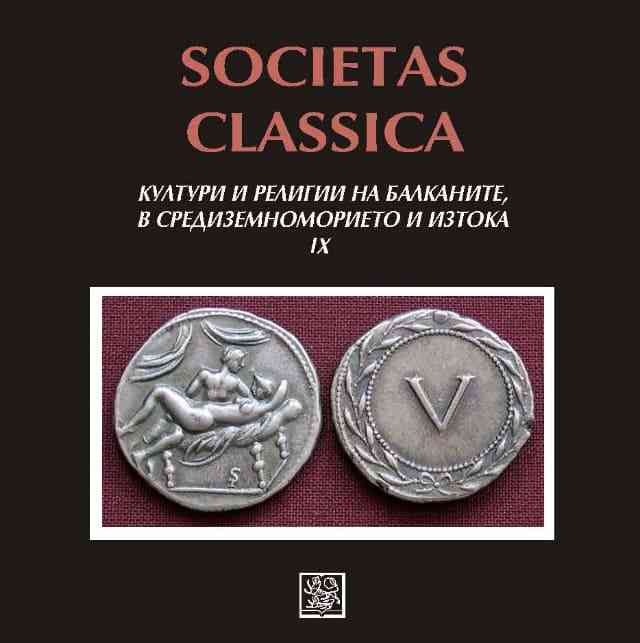
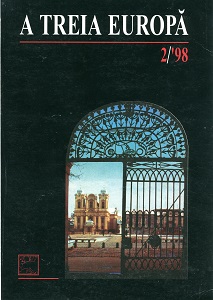
Opera lui Franz Kafka a exercitat asupra exegezei marxiste o atracție aproape hipnotică. Fapt straniu, dacă e să lăsăm deoparte psihanaliza literară sau hermeneutica de redacție mistică, niciunde altundeva interesul pentru acest scriitor nu s-a manifestat atât de intens ca în tabăra criticilor marxiști. Mai mult încă decât opera, biografia scriitorului - sau mai precis comerțul intens pe care aceasta s-a presupus că l-ar întreține cu textele propriu-zise - a devenit un argument teribil, în spatele căruia marxismul literar, dar și alte formule critice abuzive au putut să debordeze.
More...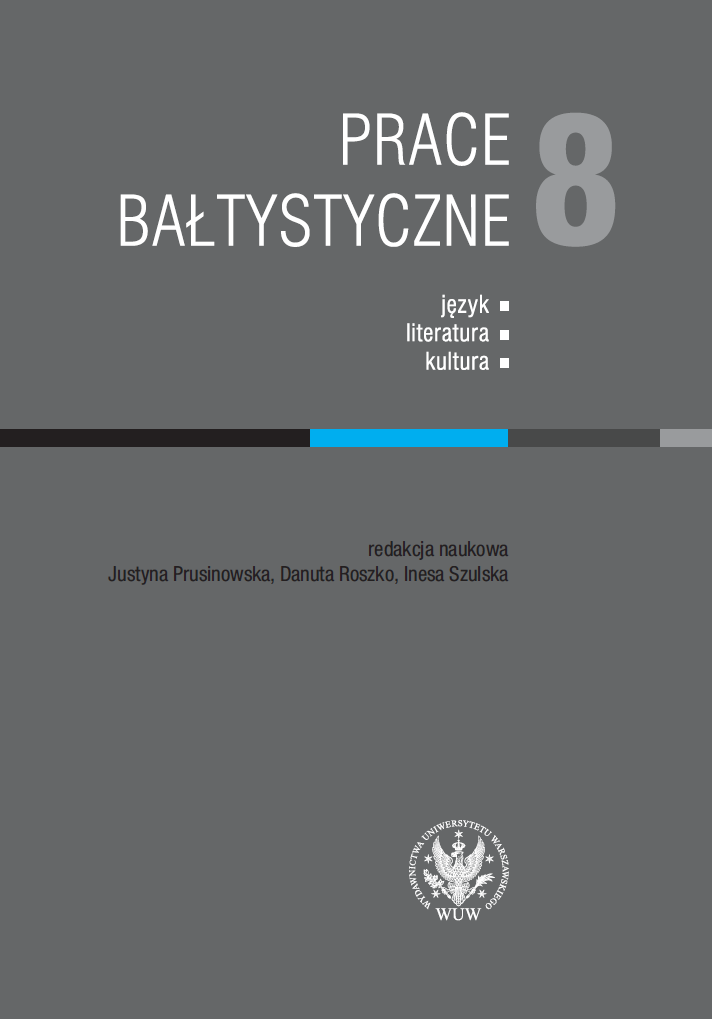
The restoration of Lithuanian independence affected Poles of Lithuania, with their lives undergoing significant changes. The attitude towards Poles also transformed. Based on journalistic texts from the Corpus of the Contemporary Lithuanian Language, the article focuses on the image of Poles of Lithuania painted by selected material, analysing the features which are most frequently mentioned, emphasised, and attributed to them. The structural approach to meaning in the article is combined with a cognitive one, involving the use of appropriate methods of analysis – from the meaning of the word to the meaning of the sentence. The study shows that in the Corpus of the Contemporary Lithuanian Language, Poles of Lithuania are portrayed primarily as the national minority fighting for its rights, suffering a lot of hardships, discriminated, as people who fear a free Lithuania, as a national minority whose leaders, seeking power, have harmed their compatriots and good relations between Lithuanians and Poles. The analysis of the material shows that at the early stages of Lithuanian independence, Lithuanians considered Poles not as others, foreigners, but as one of their own.
More...
The former traditional Lithuanian proper names in the south of the Grand Duchy of Lithuania used to belong to one geographical unit spanning Voronovo, Lida, Grodno, Suwałki–Białystok and Lithuania Minor. However, the history of this area is very diverse. Various Baltic tribes lived there and belonged to different administrative units, not to one state. The aim of the article is to find the differences in stress, formation, pronunciation, motivation and contacts with other languages in the proper names of this area. The former proper names of the Grand Duchy of Lithuania and Prussian borders are now found in three states. The article examines 3,950 place names and personal names: 1) 900 (500 place names and 400 personal names) in current Belarus between Voronovo and Grodno; 2) 1,880 (1,170 oikonyms, microtoponyms,110 hydronyms, 600 personal names) in present-day Poland; 3) 1,170 place names from Lithuania Minor in the area of Kaliningrad, now belonging to Russia. These proper names are described in more detail in the following sections, the forthcoming scientific monograph and its appendices.
More...
The State Constitution, the Universal Declaration of Human Rights, and the International Covenant on Civil and Political Rights afford every person the right to hold their own convictions and express them freely. Moreover, these beliefs do not necessarily have to be politically correct. In fact, this freedom does not extend to criminal actions provided for in the aforementioned documents: “incitement of national, racial, religious, or social hatred, violence and discrimination, with slander and disinformation” (Constitution of the RL, Article 25). The differences and emphases of these aspects are very clear: the primary norm of the law is to ensure freedom of belief and its expression, whereas criminal actions are related to secondary and derivative exceptions and limitations of these norms. The practical incompatibility of these aspects and their misunderstanding have recently posed a threat of turning into censorship of conviction expression, at least in Lithuania, as any pejorative or more emotionally coloured expression inconsistent with official ideological doctrines has been marked without a second thought as hate speech prohibited by the Constitution (hate speech, язык вражды). However, seeking to forestall censorship of thoughts and convictions, it is necessary to clearly draw the line between hate speech and constitutional freedom of expression, even if the convictions one holds are generally not accepted, politically incorrect, impolite, or coming from the margins of society. Two paths can be applied to establish this division: judicial (primary) and pragmatic (expert). Hate speech is not identified by emotional criteria (it is impossible to ban one of the main human emotions). It has to be incorporated into the list of legally prohibited actions, and this inclusion is substantiated with the use of pragmatic linguistic tools because of the linguistic nature of the very activity. Due to this, everything linked to the exceptions (not the norms) to the aforesaid laws can be easily divided into three types: a) “must be restricted” hate speech, b) “may be restricted” hate speech, c) “must be protected” hate speech as a means of ensuring freedom of the individual’s convictions and thoughts.
More...
In this article, the author attempts to conduct a film analysis through the prism of the original concept of film identity narratives. The concept is based on the hermeneutic reasoning of narrative identity by Paul Ricoeur combined with metahistoric and historiophotic reflection by Hayden White and the amplification of Mieke Bal’s focalisation theory accomplished by Robert Birkholc. The analysis pertains to Dzintars Dreibergs’ full-length feature film "Blizzard of Souls" (Dvēseļu putenis, 2019), which is based on Aleksandrs Grīns’ novel and commemorates the 100th anniversary of Latvian independence. Dreibergs’ film is a war drama which concentrates on the fate of young Artūrs Vanags, who joins the ranks of Latvian Riflemen and fights for his own and, consequently, his homeland’s freedom. The film shows the time of the First World War and the period of the Latvian struggle for independence. The article consists of two significant parts – a methodological and an analytic one.
More...
In folk worldview, disease is presented as a phenomenon that disturbs the balance in the body, mind, consciousness, or subconsciousness of a person, as well as a hostile being. Since the disease interferes with the correct order of life and disturbs the human functioning system, the only solution is to combat it and effectively free oneself from its presence. There are many treatments and ways to get rid of disease, among which zagovory constitute a separate group. In Lithuanian zagovory, as well as in all others, we can indicate a system of disease control strategies, which presents ways of influencing the disease in order to combat it (M. Marczewska). These models of behaviour are perfectly reflected in the texts of Lithuanian zagovory. Disease is expelled by the use of correct strategies. In this case, the issue of determining the location of the expulsion becomes an important element of the zagovor. The main principle here is to refer the disease to a place from which there is no return or to the place of its origin. That is why it is supposed to be a distant, foreign, untamed, closed, or dead space which belongs to a dimension other than that of a human being. In Lithuanian zagovory, we can indicate several “directions” of disease referral, which are related to the basic spaces of the world – earth, water, and air spheres. – EARTH – a binary space combining the world of life and fertility as well as the chthonic world, the sphere of dying and death. The disease is assigned to this dimension and sent to it during treatment. – WATER – mythological and media space; the surface of water is a natural border between the human world and another dimension – the underworld or a parallel world which is inaccessible to humans. This means that it is a suitable place for an expelled disease. What is more, water acts as a substance that cleanses the body physically and mentally, soaks up the disease, and overcomes it (immersion, melting the disease). – DRY TREES – they belong to the air space because the disease is directed “up”, “high” on dry trees which are no longer alive, to a zone that is already closed and belongs to a different chthonic dimension.
More...